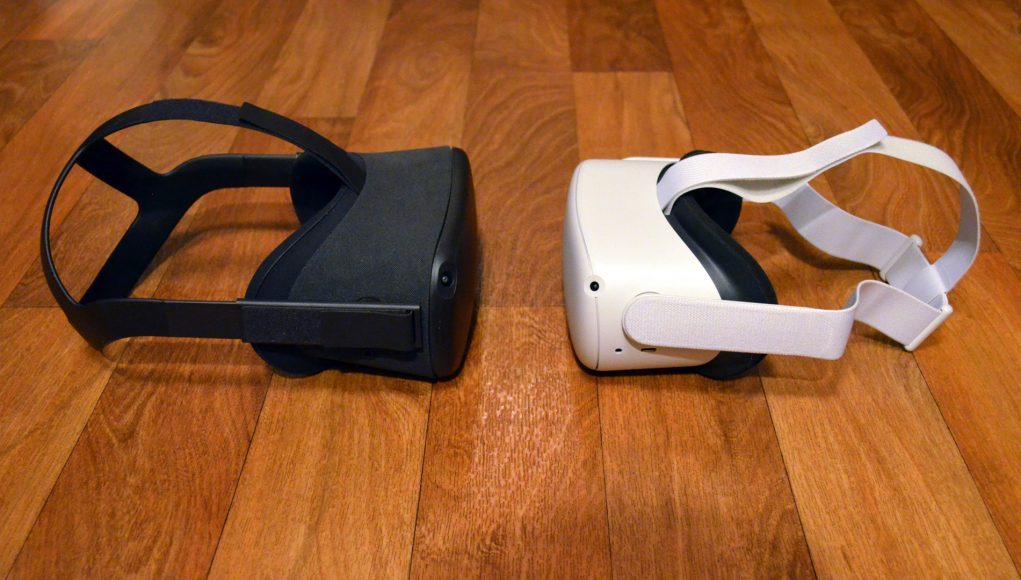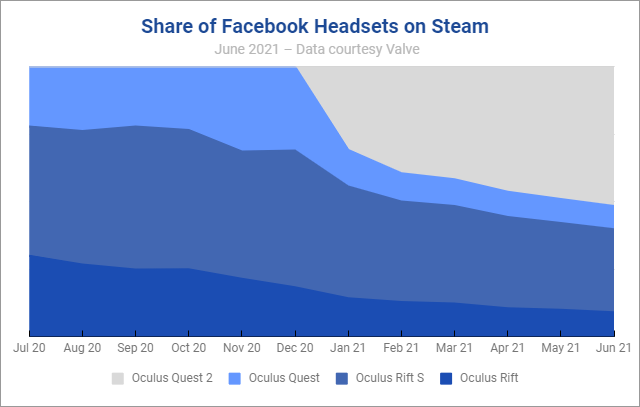Facebook’s growing grip over the VR space reached new heights last month as the company’s Oculus headsets exceeded 60% of the share of monthly-connected headsets used on Steam.
Facebook was already a major player in the VR market before the launch of Quest and Quest 2, but those headsets have significantly accelerated the company’s share of devices on the market—even on PC. Although Quest and Quest 2 are designed primarily as standalone headsets, both have the ability to act as PC VR headsets by connecting to a PC through a cable or wirelessly.
The hybrid PC VR capability has certainly not been overlooked by customers. Quest 2 became the most popular PC VR headset used on Steam just months after its release. It also quickly propelled Oculus headsets overall to more than 50% of the headsets used on Steam for the first time since the first generation of VR headsets hit the market.
Now just seven months later, Oculus headsets account for 60.18% of the share of VR headsets used on Steam, per the latest data from Valve; a growth of nearly 1% each month.
Zooming in to look only at Facebook’s headsets, we can see just how quickly Quest 2 blasted onto the scene. While it has crunched the original Rift and Rift S, it looked like the biggest bite came out of the original Quest, suggesting that a significant portion of those users traded up to the newer headset. When looking at Facebook headsets alone, Quest 2 makes up more than 50% of those used on Steam.
It’s not entirely surprising that Quest 2 broke onto the scene so quickly. At $300, it’s far and away the most affordable headset of its generation while offering extra value on top thanks to its standalone and PC VR capabilities. This is no doubt the result of heavy subsidy by Facebook, which is believed to sell the headset at a significant loss with the hopes of making up the difference through software revenue.









